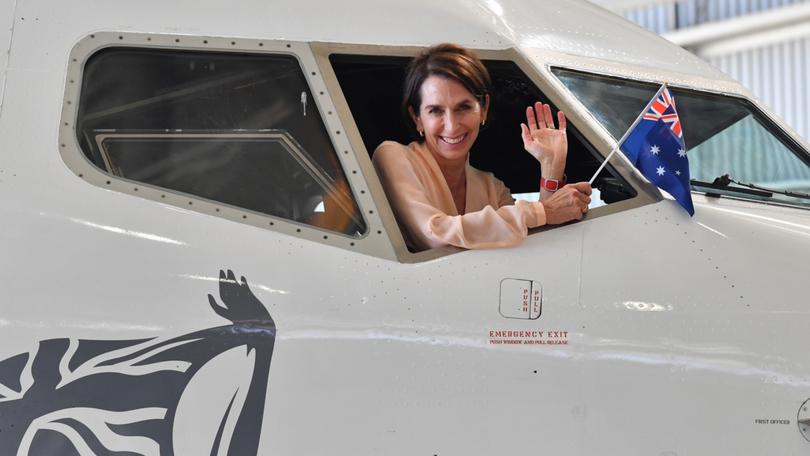Bain Capital’s haul tops $1b as Virgin Australia cancels restructure flight credits, pays $348m in dividends
Virgin Australia owner Bain Capital’s haul from the airline has soared beyond $1b as cancelled flight credits boost profits. Those with credits remaining have been urged to get in soon before they too expire.

Private equity owner Bain Capital has plucked more than $1 billion out of Virgin Australia, with the latest payouts coming after it shredded flight credits held by customers burnt in the 2020 crash.
Newly-filed Virgin Australia Holdings accounts for 2023-24 reveal it paid more than $348 million in dividends to Bain as the airline’s profit was being doubled by the shredding of flight credits.
Accounts filed with the Australian Securities and Investments Commission revealed the airline enjoyed a 320 per cent rise in net profit to $545m in 2023-24.
Sign up to The Nightly's newsletters.
Get the first look at the digital newspaper, curated daily stories and breaking headlines delivered to your inbox.
By continuing you agree to our Terms and Privacy Policy.The biggest single item was a $278m net gain on the mass cancellation of flight credits issued to Virgin Australia customers as part of a restructure deal engineered by the US financial group in 2020.
And customers who currently hold Virgin Australia flight credits should get cracking on booking flights given 2023-24 accounts showed upwards of $180m worth of flight entitlements were set to expire by June 30 next year.
Bain might be battling to convince big-ticket investors to back a return of Virgin Australia to share market trading, but it is now enjoying big returns on the rescue.
The accounts confirm the private equity owner enjoyed a $730m capital return as the airline was returning to profitability in 2022-23 after a decade of being splattered in red ink.
And in addition to Bain being paid unspecified fees for its work restructuring Virgin’s operation and finances, Virgin Australia returned $37.6m of so-called transaction costs to Bain in 2021-22.
Virgin Australia quietly filed its latest accounts late Monday after earlier pumping out a media statement celebrating its 2023-24 performance based on selective earnings measures.
The release celebrated Virgin management’s self-styled underlying earnings before interest and tax measure rise of 18 per cent to $519m.
That calculation and related commentary excluded any mention of the $278m cancellation of the flight credits or the $375m of dividend payments, let alone the state of its balance sheet.
Virgin Australia chief Jayne Hrdlicka used the selective earnings measure to sell the airline’s importance in providing competition in the Australian market as its seeks approval for Qatar Airway buying a 25 per cent stake.
While Virgin Australia’s loans and lease liabilities have more than halved to about $2.3b under its post-administration ownership, the 2023-24 accounts reveal it still has net liabilities of $1.18b.
But the good news for Bain is that Virgin Australia could have at least another $100m of liabilities disappear from the accounts before the end of the financial year.
The accounts show its liabilities at June 30, 2024, featured $107m of COVID-19 credits due to expire on June 30 next year. Those credits were issued for tickets sold after the airline’s collapsed and up to July 2022.
Another $81m of later credits, also listed as liabilities on its balance sheet, will expire 12 months after their issue, according to the latest accounts.
The 2023-24 accounts show that Virgin’s total flight credit liabilities fell from about $520m to $188m in the 12 months to June 30.
At June 30 last year, those total liabilities had included $420m of credits related to the 2020 restructure deal.
Those restructure credits were valued at $281m when they were cancelled on December 31, indicating about one-third may have been used in the first half of the 2023-24 financial year.
After $3m of associated expenses were booked, that $281m cancellation provided the $278m boost to Virgin Australia’s profit for 2023-24.
